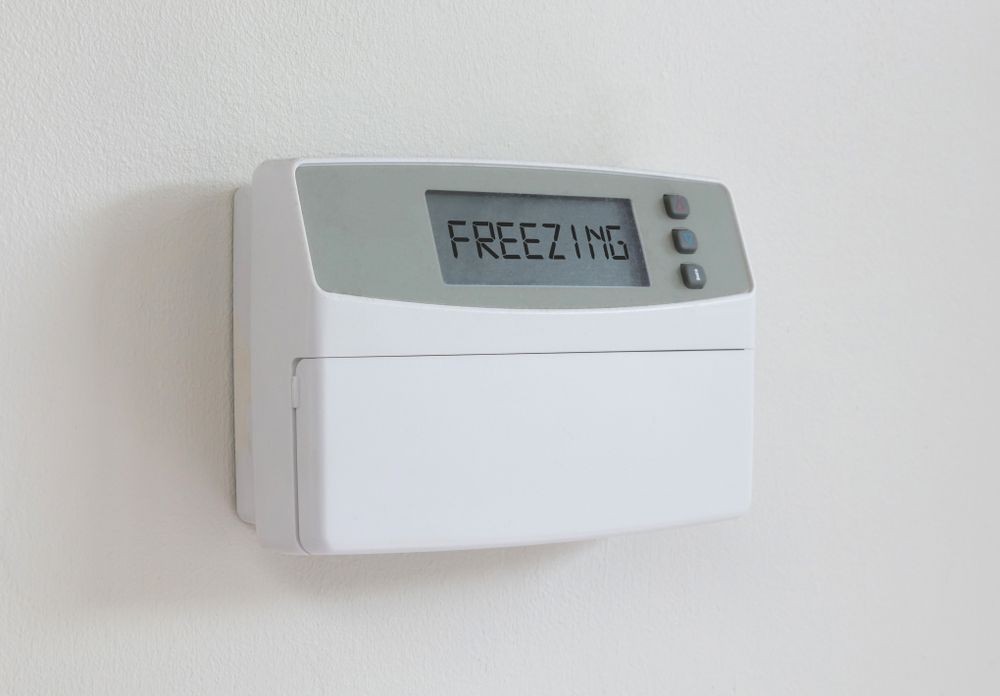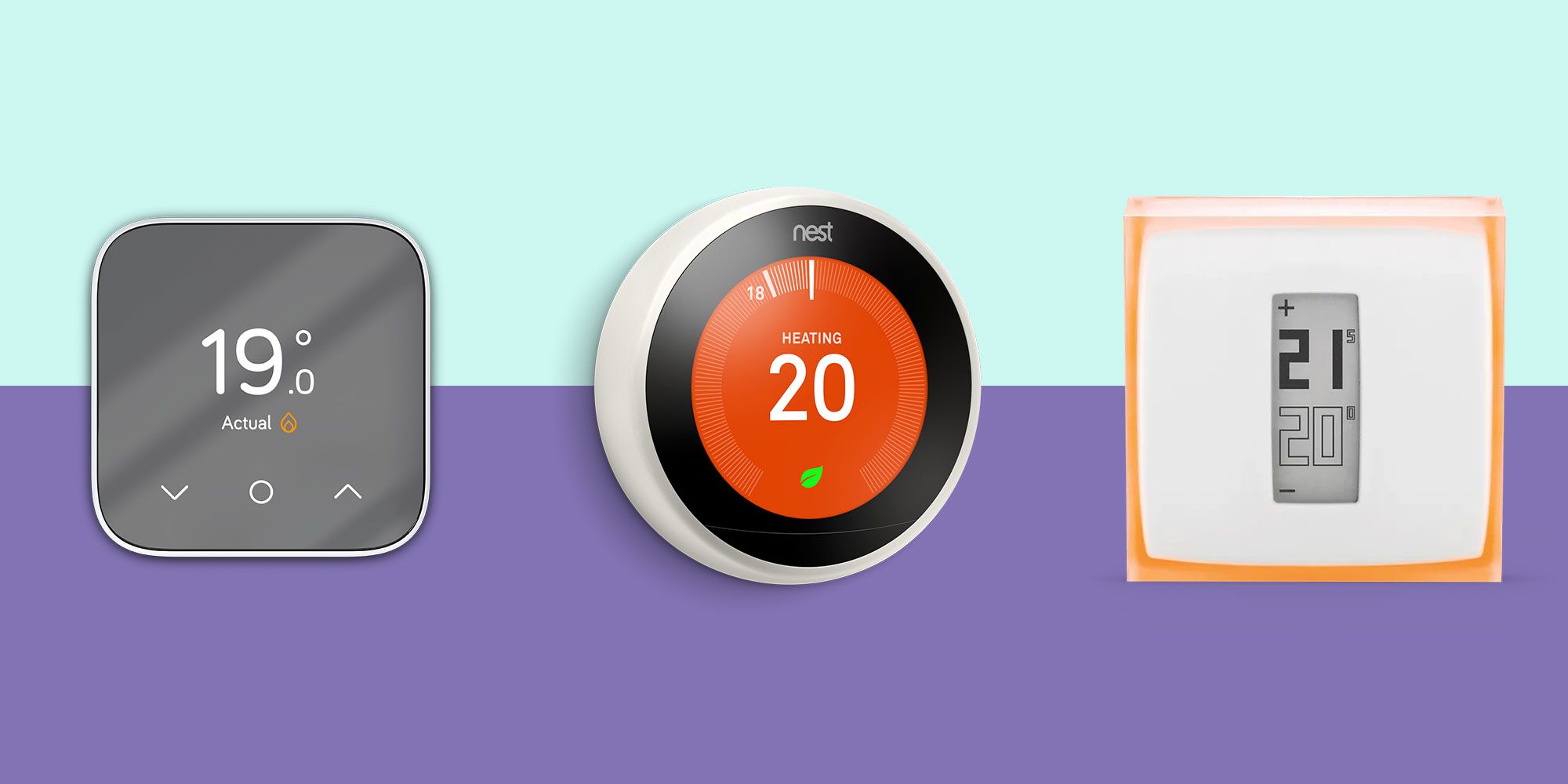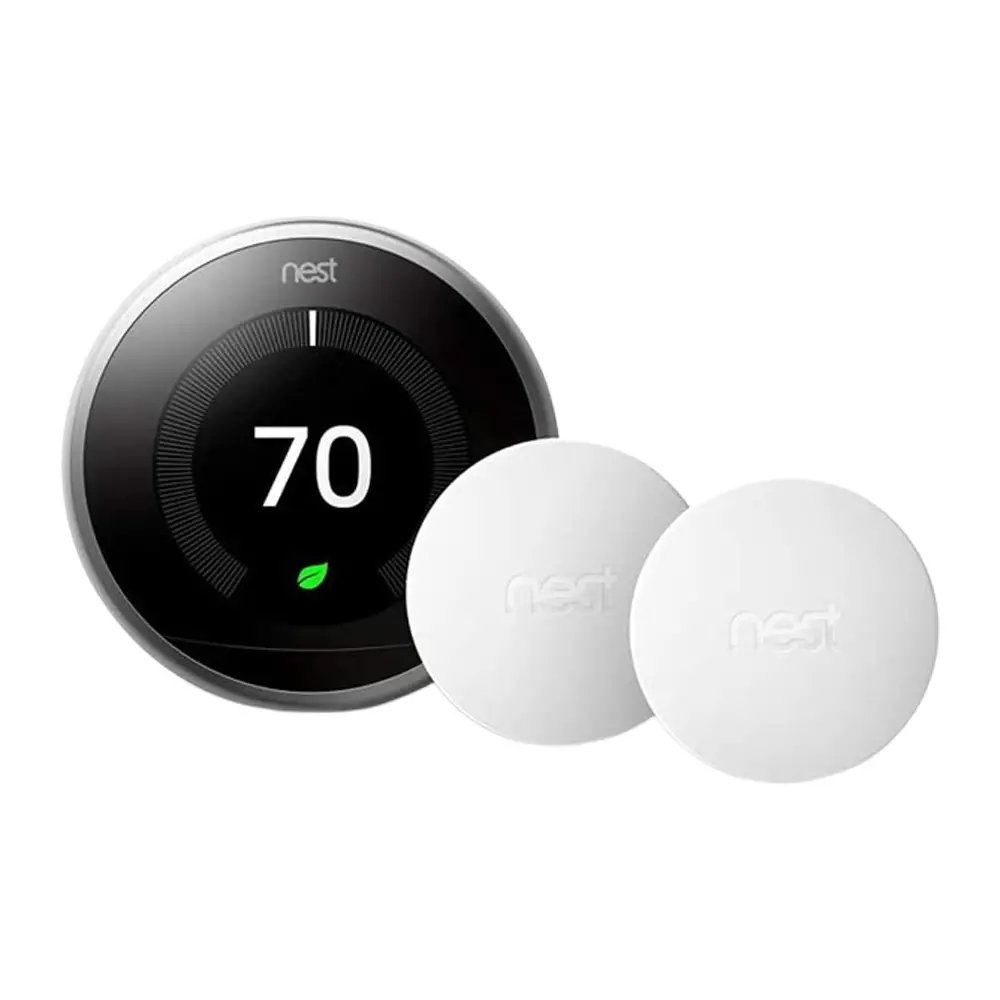Check Best Thermostat Pricing in Amazon
** As an Amazon Associate, I earn from qualifying purchases.
Yes, the type of thermostat does matter as it can affect both the efficiency of your heating and cooling systems and your energy bills. Selecting the right thermostat is crucial for optimal comfort and energy management.
Choosing an appropriate thermostat for your home can be a game-changer in terms of energy savings and climate control. Basic thermostats may provide simplicity and manual control, while programmable or smart thermostats offer more nuanced control and can learn your preferences, adjusting themselves accordingly.
Upgrading to a modern thermostat can lead to significant reductions in energy usage, as it allows for better scheduling and avoids heating or cooling when it’s not needed. For homeowners looking to enhance their energy efficiency and make smart home improvements, investing in the right type of thermostat is a strategic decision. Not only does it contribute to a comfortable living environment, but it can also help in significantly cutting down utility costs over time.

Credit: aroundclock.com
Types Of Thermostats In Modern Homes
Choosing the right thermostat is crucial for home comfort. With a range of thermostats available, it’s important to understand the differences.
Mechanical Thermostats: Simplicity And Limitations
Mechanical thermostats are the most basic type. They rely on metal strips or bi-metallic coils to sense temperature changes. These devices are durable and straightforward, making them a budget-friendly option.
- Simple to operate: Just set the temperature dial.
- No power source needed: Works without electricity.
Yet, they lack precision and features. Their simplicity leads to limitations in fine-tuning home climates.
Programmable Thermostats: Customization And Efficiency
Programmable thermostats offer more control. Users can set multiple heating and cooling schedules. This leads to greater energy efficiency and cost savings.
| Feature | Benefit |
|---|---|
| Custom Schedules | Maintain the perfect temperature day or night. |
| Week/Weekend Settings | Adapt to different routines easily. |
| Energy Savings | Use less energy by heating or cooling only when needed. |
Such thermostats can connect to Wi-Fi for remote adjustments. This feature brings a higher degree of flexibility and convenience.
Impact On Energy Consumption
When considering the Impact on Energy Consumption, your choice of thermostat can significantly influence your home’s energy use. A thermostat’s main job is to control temperature, but the model and technology influence how efficiently it does this. The type of thermostat you install can lead to either soaring energy bills or considerable savings.
Older Thermostats And Wasteful Heating Practices
Older thermostats can increase your energy consumption. These units often rely on simple technology that does not adjust temperatures based on daily routines or outside weather conditions. Let’s examine how they can lead to wasteful heating practices.
- No programming features mean heat runs unchecked.
- Manual adjustments can cause unnecessary heating or cooling.
- Lack of precise controls leads to uneven home temperatures.
Users are responsible for manually changing settings, which is often neglected. This results in heating or cooling spaces even when they are not in use, contributing to extra energy usage.
Smart Thermostats: Maximizing Energy Savings
Smart thermostats, on the other hand, are game-changers. They learn from your behaviors to adjust the heating and cooling system efficiently. Below are ways they maximize energy savings:
| Feature | Benefit |
|---|---|
| Wi-Fi Connectivity | Adjusts settings from anywhere. |
| Learning Capabilities | Creates schedules based on habits. |
| Energy Reports | Tracks usage and provides insights. |
| Geo-fencing | Turns off when you leave, on when you return. |
Intelligent algorithms help smart thermostats reduce energy waste. They ensure optimal comfort and energy conservation. By only heating or cooling your home when necessary, smart thermostats minimize energy use and lower utility bills.
Thermostats And Home Comfort
Your thermostat is a powerful tool for home comfort. Think of it as the brain of your heating and cooling systems. A smart thermostat choice can lead to a more comfortable, energy-efficient home. Below, learn how the right thermostat provides consistent temperatures and personalized zone control.
Consistent Temperatures And Occupant Comfort
The right thermostat maintains even temperatures throughout your home. No more too hot or too cold spots. Your living spaces stay at your set comfort level. With programmable options, the thermostat adjusts the temperature based on your routine. Your home gets warm when you wake up and energy usage drops when no one is home. Smart thermometers can even learn your preferences and adjust automatically.
- Even heating and cooling in all rooms
- Programmable settings tailor to your schedule
- Smart devices learn and adapt to preferences
Zone Control: Fine-tuning For Personal Preferences
Zone control systems work with your thermostat to heat or cool specific areas. Each zone has its own thermostat settings. You can keep your bedroom cool and your living room warm. This system is perfect for personal comfort and energy savings. Each family member can choose their ideal temperature in different areas of the home.
| Zone | Preferred Temperature Setting |
|---|---|
| Bedroom | Cool |
| Living Room | Warm |
| Kitchen | Moderate |
Advanced thermostats can be adjusted from your phone. You can change temperatures anytime, anywhere. This control helps ensure optimal comfort in every room.

Credit: airetechac.com
Costs And Savings Considerations
Choosing the right thermostat can greatly affect both the immediate costs and long-term savings of your home’s heating and cooling. Smart features and programmability lead to less energy waste and more dollars saved. Let’s delve into how the type of thermostat you select can make a significant impact on your wallet.
Investment Vs. Long-term Savings
Investing in a modern thermostat may seem pricy at first glance. But, the truth is higher upfront costs can lead to substantial savings down the line. Smart thermostats are a perfect example. They learn your schedule and adapt accordingly. This means they only heat or cool your home when needed. Let’s look at the numbers:
| Type of Thermostat | Initial Cost | Annual Savings |
|---|---|---|
| Smart Thermostat | $200 – $300 | Up to 20% off heating and cooling bills |
| Programmable Thermostat | $50 – $150 | Up to 10% off heating and cooling bills |
| Non-Programmable Thermostat | $20 – $50 | Minimal savings |
A smart thermostat pays for itself in just a couple of years through reduced energy bills.
Check Best Thermostat Pricing in Amazon
** As an Amazon Associate, I earn from qualifying purchases.
Rebates And Incentives For Energy-efficient Models
Rebates and incentives can sweeten the deal when upgrading to an energy-efficient thermostat. Many utility companies and governments encourage these purchases. They offer cash back or discounts, making smart thermostats more accessible. Here’s how you can find these offers:
- Check with your local utility provider
- Search for Energy Star certified products
- Visit the Database of State Incentives for Renewables & Efficiency
The savings from rebates can significantly lower the initial cost of an energy-efficient thermostat.
The Role Of Technology And Connectivity
In today’s digital age, the way we control our home’s temperature has evolved. Thermostats are no longer just on-off switches for our heating and cooling systems. They’ve become central to home automation, offering unprecedented levels of convenience and energy efficiency. Our focus here is on how technology and connectivity are shaping the world of thermostats.
Integration With Smart Home Ecosystems
Smart thermostats are the heart of a connected home. They work with various home automation systems. Here are some key points:
- Compatibility: They often support voice assistants like Amazon Alexa or Google Assistant.
- Seamless connectivity: They come with Wi-Fi capabilities, connecting with smart speakers and home hubs.
- Interoperability: They work alongside smart lights and locks, providing a unified smart home experience.
Remote Control And Learning Features
Forget about the old way of adjusting your thermostat before leaving home. Modern thermostats learn from your habits and adjust themselves. This can reduce your energy bill.
| Feature | Description |
|---|---|
| Remote Control | Manage your home’s temperature from anywhere using your smartphone. |
| Geo-fencing | The thermostat turns off when you’re away and on when you return. |
| Learning Ability | It learns your schedule and temperature preferences over time. |
Future Trends In Thermostat Technology
Thermostats have evolved far beyond simple temperature regulators. Today’s cutting-edge devices are turning homes into bastions of efficiency. With the relentless march of technology, thermostats are becoming smarter and more user-friendly. Let’s explore some exciting future trends that are set to redefine how we control our home’s climate.
Predictive Analytics In Smart Thermostats
Predictive analytics is revolutionizing smart thermostats. This technology allows thermostats to learn from your habits. Over time, they adjust your home’s temperature without you lifting a finger. The result is a perfect balance between comfort and energy savings. Here are key features predictive analytics may offer:
- Learning routines to suggest optimal temperature schedules
- Analyzing weather forecasts to pre-adjust temperatures
- Understanding peak energy times to save on bills
The Rise Of Ai In Personalized Climate Control
Artificial Intelligence (AI) is another giant leap for thermostats. Imagine a device that not only knows your preferred temperature but also your mood, the time of day, and even your schedule. AI enables a custom climate experience throughout your home. Benefits include:
- Intuitive adjustments based on personal comfort levels
- Seamless integration with other smart home devices
- Energy use optimization for lower environmental impact

Credit: www.goodhousekeeping.com
Frequently Asked Questions On Does The Type Of Thermostat Matter
Does It Matter What Kind Of Thermostat You Have?
Yes, the type of thermostat you have matters. It can affect energy efficiency, control compatibility, and smart home integration. Choose a model that suits your specific heating and cooling system requirements.
Can I Replace My Thermostat With Any Thermostat?
Not all thermostats are universally compatible. You must match wiring requirements and system compatibility before replacing your thermostat. Always consult the manufacturer’s guidelines or seek professional advice for a proper match.
Does A Better Thermostat Make A Difference?
Yes, a better thermostat can improve home temperature control, reduce energy consumption, and save on utility bills. It offers enhanced features like scheduling, remote access, and equipment monitoring.
Do All Thermostats Work The Same?
No, thermostats differ in functionality, compatibility, and technology. Manual models contrast with programmable and smart thermostats that offer varying levels of control and energy efficiency.
Conclusion
Selecting the right thermostat can enhance both comfort and energy efficiency in your home. From smart thermostats to manual ones, your choice impacts utility costs and ease of use. Remember, an informed decision now can lead to long-term savings and improved home automation.
Embrace innovation and seek a thermostat that aligns with your lifestyle needs.
Check Best Thermostat Pricing in Amazon
** As an Amazon Associate, I earn from qualifying purchases.


